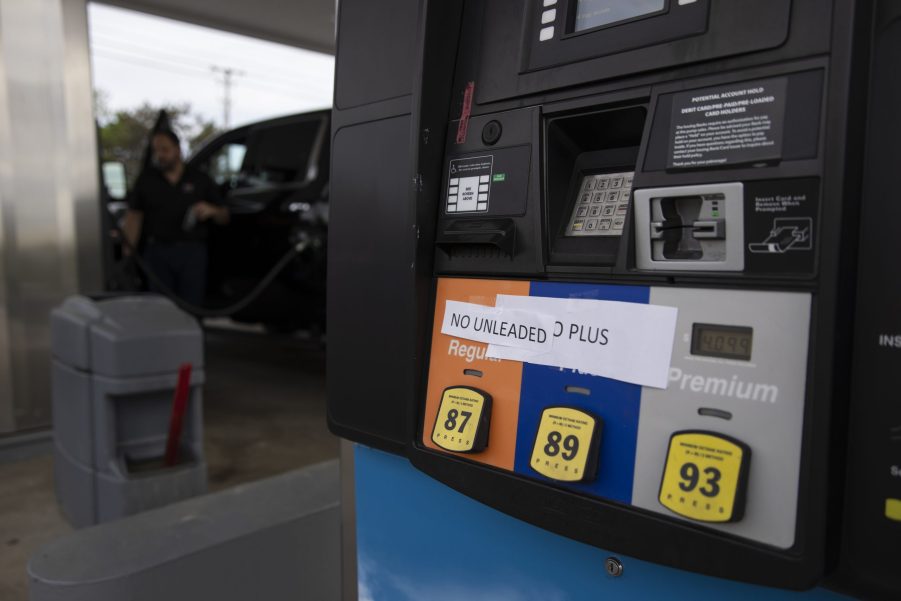
Leaded Gasoline Has Effectively Been Phased Out Everywhere On Earth After Last Country Ran Out
For many of us, leaded gasoline is a relic of a long-ago motoring past that never touched our driving experience. In 1996, leaded gasoline was banned in the U.S. and many other countries for use in cars, SUVs, Trucks, and motorcycles. However, some poorer countries have been forced to hang on to leaded gasoline for a while longer. Now that Algeria – the last nation using the stuff – has run out, the United Nations Environmental Programme (UNEP) announced that the extra-nasty fuel has now been universally outlawed.

What is leaded gasoline?
Leaded gasoline was created by GM in 1921. According to CarScoops, adding tetraethyl lead to fuel was first seen as a major breakthrough in eliminating engine knock. This “knocking” occurs when fuel is prematurely ignited in the engine’s cylinder, which degrades efficiency and can be damaging to the engine.
Fuel’s ability to remain un-ignited longer is indicated by the octane rating you see at the fuel pump. If you are unfamiliar with this term, it is because modern fuel has eliminated knock by adding higher octane ratings (i.e., 87, 89, 93.)
As of 1975, leaded fuel was widely available in the U.S., which greatly decreased engine knock. However, heart disease, various cancers, and underdeveloped children followed where leaded fuel gasoline was used. Leaded gasoline’s toxic exhaust led to its abolition in 1996.
Algeria was the last country to use leaded gasoline

Now that Algeria has finally run dry of its leaded gasoline supply, the world can finally fully outlaw the nasty stuff.
“The successful enforcement of the ban on leaded petrol is a huge milestone for global health and our environment,” said UNEP Executive Director Inger Andersen.
The fact that this fuel has finally been phased out everywhere on earth is, UNEP says, the result of a 20-year-long campaign that employed a mix of science, public education, and policy work. CarScoops reports that the ban on leaded fuel saves 1.2 million lives while sparing the world $2.4 trillion in healthcare expenses and other costs. Numbers like that make the UNEP’s win really hit with some force.
This quote from the EPA is a hearting word in a time where we almost only hear stories of doom and gloom on the environmental front; “I think this may be the single biggest success story in the environmental field,” said Michael Walsh, the former head of motor vehicle pollution control programs with the United State’s Environmental Protection Agency.
Is ethanol bad for your car?
The eradication of leaded fuel has been a hard-fought battle. Given the varied infrastructure challenges across the globe, it took a while for certain regions to make the switch from leaded fuels to fuel with Ethanol and other chemicals to help boost octane.
According to the Environmental and Energy Study Institute (EESI), ethanol has a higher volatility than gasoline, meaning it vaporizes more quickly; it is a cleaner-burning alternative to petroleum-based octane boosters. This octane booster is also more effective and cheaper than other ways to boost fuel’s octane. But how does it affect our cars?
Like everything, it depends on the application. Most modern cars won’t see much if any abnormal degradation from ethanol, according to Bell Performance. However, many small motors manufacturers in the marine industry do not recommend using blended fuel. It can also hurt older vintage cars’ engines if used for a long time. However, the short and easy answer is no; ethanol is plenty safe for most cars.
Banning leaded gasoline doesn’t fix the bigger problem, but it’s a strong step in the right direction
This is a great step for the population of the world and environmental health. As Walsh goes on to say, “I’m certainly not a Pollyanna about climate change, but at least we can say ‘We solved (the leaded fuel) problem. Let’s do something similar.’ It gives me hope.”
It is important to note that although the public consumption of this fuel is now outlawed, planes, some racing cars, farm equipment, and marine craft can still use the stuff. While leaded fuel hasn’t totally disappeared over night, we are much closer to that goal than ever before.



